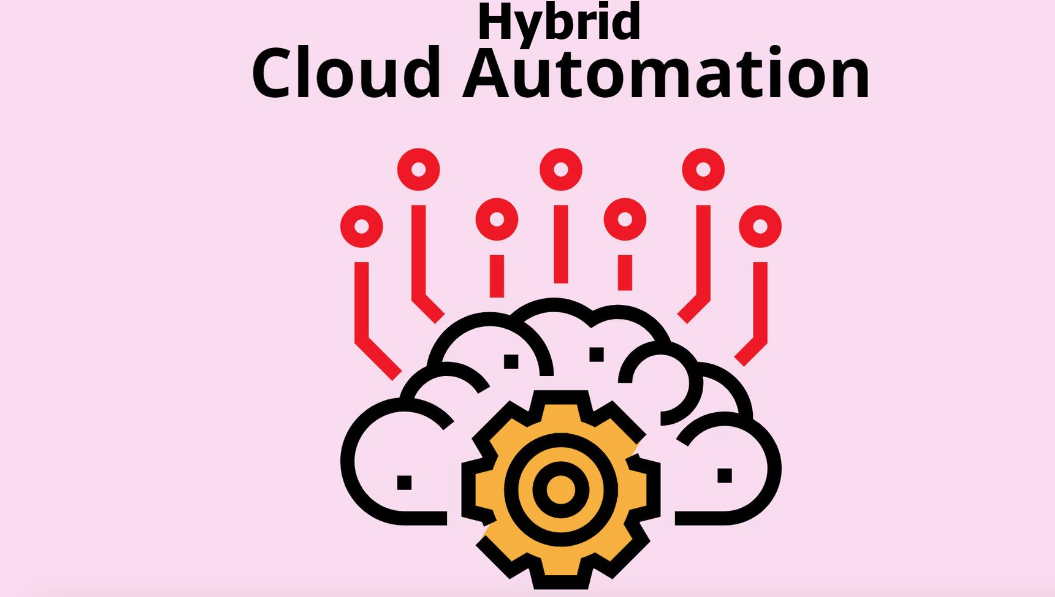Cloud automation services are a type of cloud management service that focuses on automating routine tasks and processes related to cloud infrastructure. These services use software and tools to automate tasks such as provisioning, scaling, and deployment, freeing up IT staff to focus on more strategic initiatives.
Cloud automation services provide several benefits, including increased efficiency, reduced errors, and improved scalability. By automating routine tasks, organizations can reduce the time and effort required to manage their cloud infrastructure, freeing up IT staff to focus on more complex tasks. This can lead to increased efficiency and reduced costs, as well as improved scalability and agility.
Hybrid Cloud Technology New Updates:
- Hybrid Cloud Security Puzzle: Integrated Solutions for Cloud Computing
- Some Hybrid Cloud Security Risks Challenges and How to Repair them
- Public & Private Hybrid Cloud Hosting and Computing Solutions
- Hybrid Cloud Hosting: Uses and Best Practices
Types of Cloud Automation Services
There are several types of cloud automation services, each designed to address different aspects of cloud management. Some of the most common types of cloud automation services include:
1. Cloud Provisioning Services
Cloud provisioning services automate the process of creating new instances or resources in the cloud. These services enable organizations to quickly spin up new resources, such as virtual machines or storage, without the need for manual intervention. This Cloud provisioning services can also be used to automate the process of scaling resources up or down based on demand.
2. Cloud Configuration Services
Cloud configuration services automate the process of configuring cloud resources. These services enable organizations to automate the process of setting up cloud resources, such as virtual machines or databases, to meet specific requirements. Also, this Cloud configuration services can also be used to automate the process of updating or patching resources to ensure they are up-to-date and secure.
3. Cloud Deployment Services
Cloud deployment services automate the process of deploying applications to the cloud. These services enable organizations to automate the process of deploying applications to the cloud, making it faster and more efficient. Moreover, Cloud deployment services can also be used to automate the process of updating or rolling back applications, ensuring that they are always up-to-date and running smoothly.
4. Cloud Monitoring Services
Cloud monitoring services automate the process of monitoring cloud resources. These services enable organizations to automate the process of monitoring cloud resources, such as virtual machines or storage, to identify and resolve issues quickly. Cloud monitoring services can also be used to automate the process of generating alerts or notifications when specific events occur, such as when a resource exceeds a certain threshold.
Benefits of Cloud Automation Services
1. Increased Efficiency
Cloud automation services can significantly increase the efficiency of cloud management tasks. By automating routine tasks, such as provisioning or configuration, organizations can reduce the time and effort required to manage their cloud infrastructure, freeing up IT staff to focus on more complex tasks.
2. Reduced Errors
Cloud automation services can also help reduce errors in cloud management tasks. By automating routine tasks, organizations can reduce the risk of human error, such as misconfigurations or incorrect settings. This can lead to improved reliability and reduced downtime.
3. Improved Scalability
Cloud automation services can help organizations improve the scalability of their cloud infrastructure. By automating the process of provisioning or scaling resources, organizations can quickly and easily scale their infrastructure up or down to meet demand. This can help organizations avoid overprovisioning resources, leading to reduced costs and improved efficiency.
4. Better Resource Utilization
Cloud automation services can also help organizations optimize their resource utilization. By automating the process of monitoring and optimizing resources, organizations can identify and address underutilized resources, leading to reduced costs and improved efficiency.
Challenges of Hybrid Cloud Automation
1. Complexity:
Cloud automation can be complex and difficult to implement, especially for organizations that are new to the technology. It requires a deep understanding of cloud infrastructure, application architectures, and automation tools.
2. Integration:
Organizations often have existing legacy systems that need to be integrated with cloud automation services. This can be a challenge, especially if the legacy systems were not designed to work with cloud services.
3. Security:
Cloud automation services can pose security risks if not properly configured and secured. Organizations need to ensure that their automation tools are secure and that they are using best practices for cloud security.
4. Cost:
Cloud automation services can be expensive, especially if organizations need to purchase additional software and hardware. Organizations need to carefully consider the cost of implementing automation services and ensure that the benefits outweigh the costs.
5. Training:
Cloud automation requires skilled professionals who are trained in cloud infrastructure and automation tools. Organizations may need to invest in training their employees to use these tools effectively.
6. Resistance to Change:
Resistance to change can be a significant challenge when implementing cloud automation services. Employees may be resistant to new processes and tools, which can slow down the adoption of automation services.
Recommended Articles
- Hybrid Cloud Types, Storage, Examples and How it Works
- DevOps Engineer’s Guide to Kubernetes Operating Systems
- How I Got Rid of My Hybrid Cloud Tech Management Headache
- Multi Cloud – Approach, Strategies, Implementations, App Management
Conclusion
Cloud automation services are an essential tool for organizations looking to optimize their cloud infrastructure. These services provide a range of benefits, including increased efficiency, reduced errors, improved scalability, and better resource utilization. By automating routine tasks and processes, organizations can free up IT staff to focus on more complex tasks, leading to improved efficiency and reduced costs. With the continued growth of cloud adoption, cloud automation services are likely to become even more critical in the years to come.







